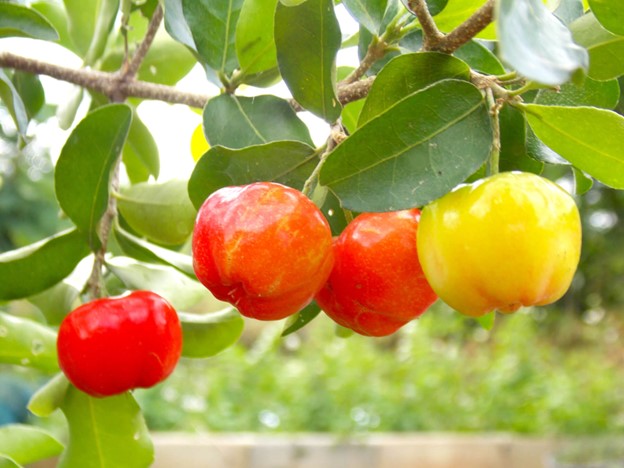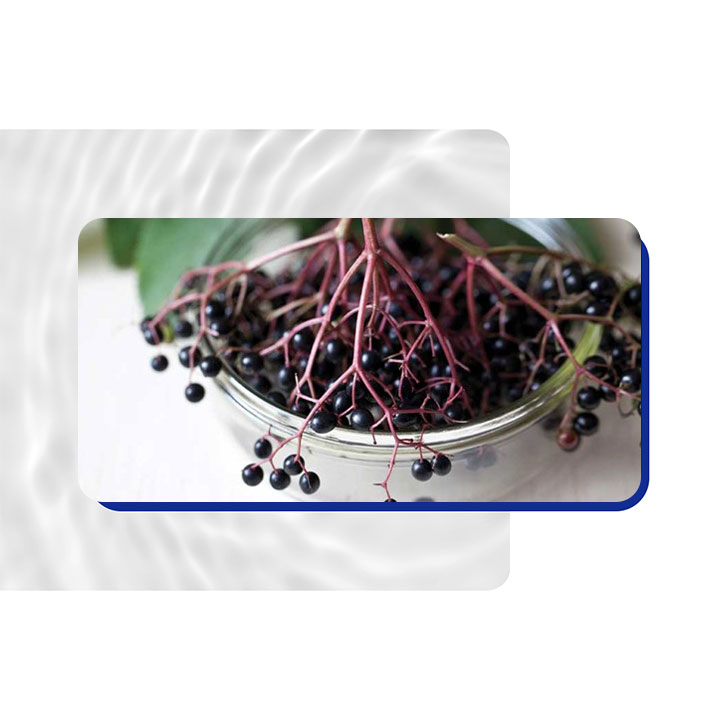Immune health is a hot topic, but what exactly does it mean to have a healthy immune system? It doesn’t mean that we never feel a bit under the weather because that’s just a part of life. Instead, immune health means our body keeps us well most of the time and helps us bounce back quickly if we feel less than our best.
Many things can deplete our immune systems, including stress, poor diet, or lack of sleep. So to counter these daily immune system stressors, people often turn to natural ways to optimise immune health. One way to accomplish this is by using botanicals, or plant-based supplements.
Botanicals and herbs have been used for centuries in traditional medicine to promote vitality and well-being, passed down by knowledgeable healers from generation to generation. For a long time, Western medicine largely dismissed these treatments, but in recent years, there has been a renewed interest in the science of botanicals as a way to support health
Some botanical supplements work by directly supporting the cells of the immune system while others help by helping the body better regulate stress or improving sleep quality, which also indirectly benefits immunity. Today, there is a growing body of scientific evidence to support the use of certain botanicals for immune health. They are powerful allies that can be part of a daily wellness routine. Here are 5 botanical supplements that could help support your immune health.
1. Sambucus Nigra (Black Elderberry)
Black elderberry is more popular than ever, but it’s been used medicinally for centuries.1 The berries and flowers of elderberry contain antioxidants, which help protect the body against oxidative damage from free radicals that could otherwise negatively impact your immune cells.2
Some research suggests it may help when you’re feeling a little under the weather by supporting a healthy immune response. Your immune system uses a complex array of signalling molecules to control how your body responds to potential pathogens, and elderberry may help to regulate these signals.3
A meta analysis featuring 180 participants looked at the effect of elderberry syrup on upper respiratory health and found that it shortened how long people felt under the weather, so it could be something to use when you start to notice you don’t feel well.4
2. Panax Ginseng (Ginseng or Korean Ginseng)
The powdered roots of Panax ginseng have been used historically in Traditional Chinese Medicine for many aspects of health.5 The word Panax is derived from Greek, meaning all-healing.6
People given Ginseng saw positive changes in many immune cells, including:7,8
- T cells, which are vital players in our adaptive immune system.
- B cells, which are essential for producing antibodies.
- Dendritic cells, which are key players in alerting the immune system to potential threats.
A lot of the research on ginseng points to its ability to support the equilibrium of the immune system, so it’s primed and ready to keep you well. The benefit of ginseng may be related to compounds found in the plant like saponins, ginsenosides, and other phenolic compounds that support immune health in your body.9

3. Eleutherococcus Senticosus (Siberian Ginseng)
Although it shares ginseng in the common name, Eleutherococcus (or eleuthero) is different and affects your health in different ways. Traditionally it’s used to support energy, Siberian ginseng is an adaptogen, meaning it helps the body better deal with stress.10
Adaptogens are plants that help the body to resist physical, chemical, or biological stressors by helping it to maintain homeostasis. This may be beneficial for immune health because stress is known to have a negative impact on our bodies, including immune cells.
Eleutherosides are the compound in Siberian ginseng that are thought to underlie its effects and support healthy immune activity. In particular, Siberian ginseng could support T-cell production and Natural Killer cell activity.11,12 Remember, these immune cells are essential for keeping you healthy and protected against potential threats.
When used in combination with Andrographis, a plant with a long history of use in Ayurvedic medicine, Siberian ginseng may provide additional positive health benefits.13
4. Ganoderma Lucidum (Reishi)
Also used in Traditional Chinese Medicine, Reishi (or Lingzhi) is a woody mushroom used for centuries for overall health and well-being. Reishi is one of the more studied mushrooms and has been called the 10,000-year mushroom or the Mushroom of Immortality.14
Like the other plants listed above, Reishi helps modulate the immune response.15,16 In fact, its action is so potent that it’s not always recommended for people with autoimmunity because it can be so effective at activating immune cells.
Interestingly, one study on athletes found that Reishi could support the immune response of healthy athletes exposed to stress (this is important because strenuous exercise can temporarily deplete the immune system).17
Reishi also is considered a calming botanical that may support your immune system. Inflammatory cytokines are chemical messengers that signal for inflammation as a normal part of the immune response, but sometimes they can get out of balance. Reishi appears to help reduce the production of some of these inflammatory cytokines, keeping your immune response in check.18
5. Malpighia glabra (Acerola)
Acerola, also known as Barbados cherry or West Indian cherry, is a small, red fruit found in the tropics. It’s often used as a food or beverage ingredient because it’s known to be one of the best natural sources of ascorbic acid (vitamin C). 100 grams of Acerola contains about 1,600 mg of vitamin C – that’s 50 to 100 times the amount found in the same serving size of oranges or lemons.19
Most people are familiar with vitamin C to support the immune system, and it does this by supporting the activity of several important immune cells.20 Vitamin C is essential for the function of neutrophils, macrophages, and Natural Killer cells – all of which are important for a healthy immune system. xix
Vitamin C is helpful for both the adaptive and innate immune systems.21 The adaptive immune system is the part of the immune system that “remembers” threats and helps to protect you from them in the future. The innate immune system is the first line of defence against potential threats.
Supplements usually contain the synthetic form of vitamin C, but Acerola provides a natural form of vitamin C.22

Plants for Immune Health Key Takeaways
These five all have different mechanisms by which they support immune health. Some, like Siberian ginseng and Reishi, help to modulate the immune response, while others, like Acerola, provide essential nutrients that are necessary for healthy cells.
While a holistic approach is necessary to keep your immune system healthy, all these plants could be a beneficial way to stay healthy and feel well.
Caitlin Beale, MS, RDN is a registered dietitian and freelance health writer. She has a master’s degree in nutrition and over ten years of experience as a registered dietitian.
+The views expressed in this article are those of the authors. They do not reflect the opinions or views of Pure Encapsulations®.
1 Tiralongo, Evelin, Shirley S. Wee, and Rodney A. Lea. Nutrients 8, no. 4 (March 24, 2016): 182. https://doi.org/10.3390/nu8040182.
2 Sidor, Andrzej, and Anna Gramza-Michałowska. “Advanced Research on the Antioxidant and Health Benefit of Elderberry (Sambucus Nigra) in Food – a Review.” Journal of Functional Foods, Natural Antioxidants, 18 (October 1, 2015): 941–58. https://doi.org/10.1016/j.jff.2014.07.012.
3 Ulbricht, Catherine, Ethan Basch, Lisa Cheung, Harley Goldberg, Paul Hammerness, Richard Isaac, Karta Purkh Singh Khalsa, et al. “An Evidence-Based Systematic Review of Elderberry and Elderflower (Sambucus Nigra) by the Natural Standard Research Collaboration.” Journal of Dietary Supplements 11, no. 1 (March 1, 2014): 80–120. https://doi.org/10.3109/19390211.2013.859852.
4 Hawkins, Jessie, Colby Baker, Lindsey Cherry, and Elizabeth Dunne. “Black Elderberry (Sambucus Nigra) Supplementation Effectively Treats Upper Respiratory Symptoms: A Meta-Analysis of Randomized, Controlled Clinical Trials.” Complementary Therapies in Medicine 42 (February 1, 2019): 361–65. https://doi.org/10.1016/j.ctim.2018.12.004.
5 Nag, Subhasree Ashok, Jiang-Jiang Qin, Wei Wang, Ming-Hai Wang, Hui Wang, and Ruiwen Zhang. Frontiers in Pharmacology 3 (2012): 25. https://doi.org/10.3389/fphar.2012.00025.
6 Yun, T. K. “Brief Introduction of Panax Ginseng C.A. Meyer.” Journal of Korean Medical Science 16 Suppl (December 2001): S3-5. https://doi.org/10.3346/jkms.2001.16.S.S3.
7 Hyun, Sun Hee, Ha-Young Ahn, Hyeong-Jun Kim, Sung Won Kim, Seung-Ho So, Gyo In, Chae-Kyu Park, and Chang-Kyun Han. “Immuno-Enhancement Effects of Korean Red Ginseng in Healthy Adults: A Randomized, Double-Blind, Placebo-Controlled Trial.” Journal of Ginseng Research 45, no. 1 (January 1, 2021): 191–98. https://doi.org/10.1016/j.jgr.2020.08.003.
8 Kang, Soowon, and Hyeyoung Min. “Ginseng, the ‘Immunity Boost’: The Effects of Panax Ginseng on Immune System.” Journal of Ginseng Research 36, no. 4 (October 2012): 354–68. https://doi.org/10.5142/jgr.2012.36.4.354.
9 Riaz, Muhammad, Najm Ur Rahman, Muhammad Zia-Ul-Haq, Hawa Z. E. Jaffar, and Rosana Manea. “Ginseng: A Dietary Supplement as Immune-Modulator in Various Diseases.” Trends in Food Science & Technology 83 (January 1, 2019): 12–30. https://doi.org/10.1016/j.tifs.2018.11.008.
10 Davydov, M., and A. D. Krikorian. “Eleutherococcus Senticosus (Rupr. & Maxim.) Maxim. (Araliaceae) as an Adaptogen: A Closer Look.” Journal of Ethnopharmacology 72, no. 3 (October 2000): 345–93. https://doi.org/10.1016/s0378-8741(00)00181-1.
11 Szołomicki, J., L. Samochowiec, J. Wójcicki, M. Droździk, and S. Szołomicki. “The Influence of Active Components of Eleutherococcus Senticosus on Cellular Defence and Physical Fitness in Man.” Phytotherapy Research: PTR 14, no. 1 (February 2000): 30–35. https://doi.org/10.1002/(sici)1099-1573(200002)14:1<30::aid-ptr543>3.3.co;2-m.
12 Bohn, B., C. T. Nebe, and C. Birr. “Flow-Cytometric Studies with Eleutherococcus Senticosus Extract as an Immunomodulatory Agent.” Arzneimittel-Forschung 37, no. 10 (October 1987): 1193–96.
13 Gabrielian, E. S., A. K. Shukarian, G. I. Goukasova, G. L. Chandanian, A. G. Panossian, G. Wikman, and H. Wagner. Phytomedicine: International Journal of Phytotherapy and Phytopharmacology 9, no. 7 (October 2002): 589–97. https://doi.org/10.1078/094471102321616391.
14 Wachtel-Galor, Sissi, John Yuen, John A. Buswell, and Iris F. F. Benzie. “Ganoderma Lucidum (Lingzhi or Reishi): A Medicinal Mushroom.” In Herbal Medicine: Biomolecular and Clinical Aspects, edited by Iris F. F. Benzie and Sissi Wachtel-Galor, 2nd ed. Boca Raton (FL): CRC Press/Taylor & Francis, 2011. http://www.ncbi.nlm.nih.gov/books/NBK92757/.
15 Lin, Yu-Li, Yu-Chih Liang, Shiuh-Sheng Lee, and Bor-Luen Chiang. “Polysaccharide Purified from Ganoderma Lucidum Induced Activation and Maturation of Human Monocyte-Derived Dendritic Cells by the NF-KappaB and P38 Mitogen-Activated Protein Kinase Pathways.” Journal of Leukocyte Biology 78, no. 2 (August 2005): 533–43. https://doi.org/10.1189/jlb.0804481.
16 Hsu, Hsien-Yeh, Kuo-Feng Hua, Chun-Cheng Lin, Chun-Hung Lin, Jason Hsu, and Chi-Huey Wong. “Extract of Reishi Polysaccharides Induces Cytokine Expression via TLR4-Modulated Protein Kinase Signaling Pathways.” Journal of Immunology (Baltimore, Md.: 1950) 173, no. 10 (November 15, 2004): 5989–99. https://doi.org/10.4049/jimmunol.173.10.5989.
17 Zhang, Y., Z. Lin, Y. Hu, and F. Wang. “Effect of Ganoderma Lucidum Capsules on T Lymphocyte Subsets in Football Players on ‘Living High-Training Low.’” British Journal of Sports Medicine 42, no. 10 (October 2008): 819–22. https://doi.org/10.1136/bjsm.2007.038620.
18 Ahmad, Md Faruque. “Ganoderma Lucidum: Persuasive Biologically Active Constituents and Their Health Endorsement.” Biomedicine & Pharmacotherapy = Biomedecine & Pharmacotherapie 107 (November 2018): 507–19. https://doi.org/10.1016/j.biopha.2018.08.036.
19 Prakash, Anand, and Revathy Baskaran. “Acerola, an Untapped Functional Superfruit: A Review on Latest Frontiers.” Journal of Food Science and Technology 55, no. 9 (September 2018): 3373–84. https://doi.org/10.1007/s13197-018-3309-5.
20 Delva, Lemâne, and Renée Goodrich Schneider. “Acerola (Malpighia Emarginata DC): Production, Postharvest Handling, Nutrition, and Biological Activity.” Food Reviews International 29, no. 2 (March 13, 2013): 107–26. https://doi.org/10.1080/87559129.2012.714433.
21 Carr, Anitra C., and Silvia Maggini. “Vitamin C and Immune Function.” Nutrients 9, no. 11 (November 3, 2017): 1211. https://doi.org/10.3390/nu9111211.
22 Uchida, Eriko, Yoshitaka Kondo, Akiko Amano, Shingo Aizawa, Takayuki Hanamura, Hitoshi Aoki, Kenichi Nagamine, Takeshi Koizumi, Naoki Maruyama, and Akihito Ishigami. “Absorption and Excretion of Ascorbic Acid Alone and in Acerola (Malpighia Emarginata) Juice: Comparison in Healthy Japanese Subjects.” Biological & Pharmaceutical Bulletin 34, no. 11 (2011): 1744–47. https://doi.org/10.1248/bpb.34.1744.

